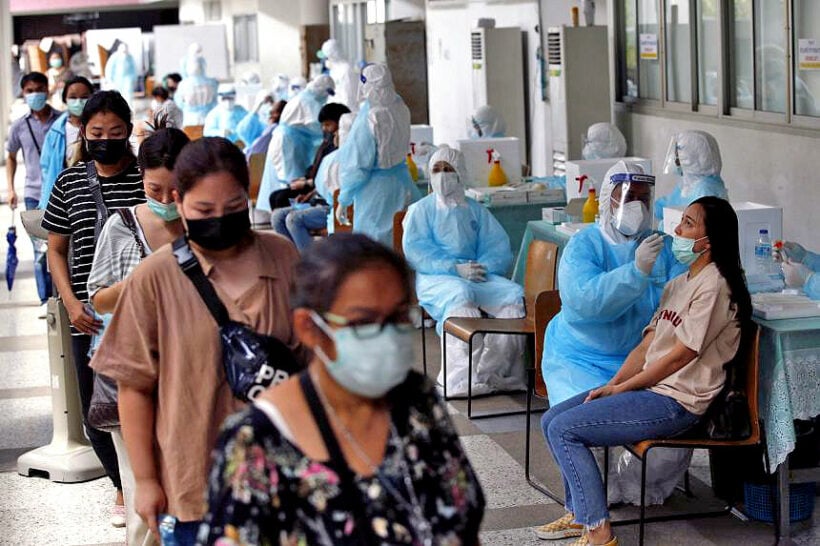Covid-19: Thailand struggles with South and Southeast Asia

In 2020, Thailand was hailed worldwide for its iron-fisted lockdown that curbed Covid-19 spread almost completely. Thailand was the second country in the world after China to identify a Covid-19 infection in January of last year but managed to keep its numbers impressively low, at least until December’s second wave of outbreaks. That wave drove the numbers up to nearly 29,000 Covid-19 infections in a nation of more than 69 million people, from the onset of Covid-19 in 2020 to the end of March 2021. But its devastating third wave struck in April and in just 5 weeks that number has more than doubled to above 76,000 Covid-19 infections.
Daily infection rates are now hovering around 2,000 per day with 1,911 reported yesterday. When a new Covid-19 cluster was identified in the elite nightclub scene of Bangkok’s Thonglor district, 196 entertainment venues were closed for 2 weeks. But as the virus spread throughout the nation the closures followed too and soon all nightlife venues were closed indefinitely. As infections grew, the Thai New Year came and while most Songkran activities and events were cancelled, many people still went on holiday to cities or beaches or travelled to be with their families in their hometowns. Despite warnings and attempts at contact tracing and testing, Covid-19 infections surged in Thailand after the holiday.
With the influx of new infections, hospitals began to fill up quickly and waiting lists formed to obtain a hospital bed. The government required anyone in Thailand who tested positive for Covid-19 to be immediately admitted to hospital for observation and treatment. This may have done more harm than good as there were reports of Bangkok hospitals refusing to administer Covid-19 tests because they didn’t have the capacity to take in any patient that came back positive.
Field hospitals have been set up using conference centres and sports arenas, and the country launched a plea for hotels to convert into “hospitels” – a hospital-hotel hybrid that could treat asymptomatic and low-needs patients and free up space for those in need of more intense medical care.
Vaccination has been slow and the government has come under frequent fire for their inefficient roll out. Confusion is constant with conflicting reports of deals being reached with vaccine manufacturers, delays in shipments and domestic manufacturing, questions about how to get a vaccine, and whether or not foreigners and expats in Thailand are even eligible for Covid-19 vaccination and at what cost.
This week the government push to vaccinate 50,000 people in core and dense areas in Bangkok after an outbreak of 300 new cases in the neighbourhood. But as of now, only 2 out of every 100 people have been vaccinated for Covid-19 in Thailand, a discouraging statistic when even India, in the midst of its catastrophic outbreak, has vaccinated 12 people out of every 100.
Here’s how Thailand compares to ASEAN members and neighbouring countries:
| COUNTRY | CASES PER 1M (Wikipedia) | AT LEAST 1 DOSE |
| Worldwide | 20,072 | 8.11% |
| Brunei | 515 | 2.45% |
| Cambodia | 1,153 | 9.61% |
| India | 15,796 | 9.5% |
| Indonesia | 6,359 | 4.76% |
| Laos | 165 | 1.73% |
| Malaysia | 13,071 | 2.83% |
| Maldives | 89,035 (pop. < 1m) | 55.53% |
| Myanmar | 2,629 | 1.84% |
| Nepal | 12,287 | 7.18% |
| Philippines | 9,957 | 1.63% |
| Singapore | 10,745 | 23.32% |
| Sri Lanka | 5,477 | 4.33% |
| Thailand | 1,186 | 1.72% |
| Vietnam | 32 | 0.69% |
Read about the current Covid-19 situation in countries around South and Southeast Asia: Cambodia, India, Indonesia, The Maldives, Nepal, Sri Lanka and Thailand.
SOURCE: CNN
Latest Thailand News
Follow The Thaiger on Google News:


























